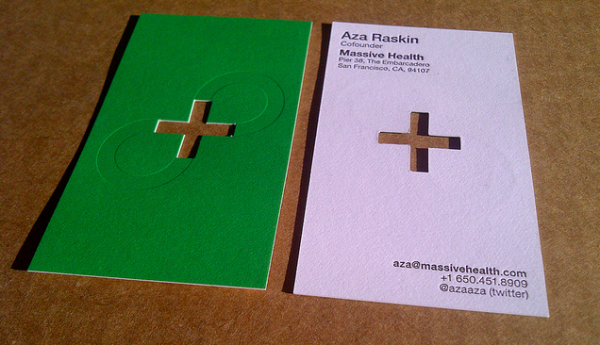A new healthcare startup called Massive Health has been getting a lot of buzz recently. They are still in–as they call it–“ninja mode,” so there aren’t a lot of details about the products and services they will be offering. But it’s clear that the company is going to be focusing on driving behavior change by tightening the feedback loop between the actions people undertake (eating, exercising, working, sitting, etc.) and the performance of their body systems. With Aza Raskin–an innovative interaction designer who last served as the creative lead for Mozilla Firefox, it’s all but guaranteed that whatever solutions Massive Health comes up with will feature user experiences that are intuitive and enjoyable. As Raskin put it in this Xconomy interview, those things are essential to behavior change:
We looked at the state of the world and realized that 90 percent of U.S. healthcare costs go to 15 percent of patients–people with diabetes, weight loss problems, hypertension, heart disease. We are trying to create fantastically user-centric products that tackle these really hard problems that are going to be the pandemics of our times. The reason we raised as much as we did, $2.25 million as a seed round, was to give us the leeway to make products that actually change users’ behavior. Why is it that you can have fantastically designed products when you want to make a phone call or listen to music, but when you’re sick you’re back to something that feels clinical and sterile? It’s no wonder people have trouble changing their behavior.
That quote highlights another intriguing aspect of Massive Health–they have been explicit about focusing on people that are already sick. As discussed on this blog, there are numerous wellness apps and accessories for mobile devices that do some pretty impressive things and will ultimately make for better interactions between patients and doctors. But a lot of people that seek out wellness apps are already pretty healthy. Massive Health hopes to take a different tack and target people that wouldn’t necessarily buy a FitBit or use Nike Plus. This will be a tricky (and fascinating) challenge, as a lot of the people in that 15 percent that Raskin refers to are seniors and are unlikely to be super tech savvy; many may have just gotten their first cell phone (perhaps as a gift from their children) in the last couple of years.
If Massive Health can find a way to break through the technological, cultural, and motivational barriers and engage even a portion of the 15 percent of Americans who incur 90% of healthcare costs, they will be successful.

